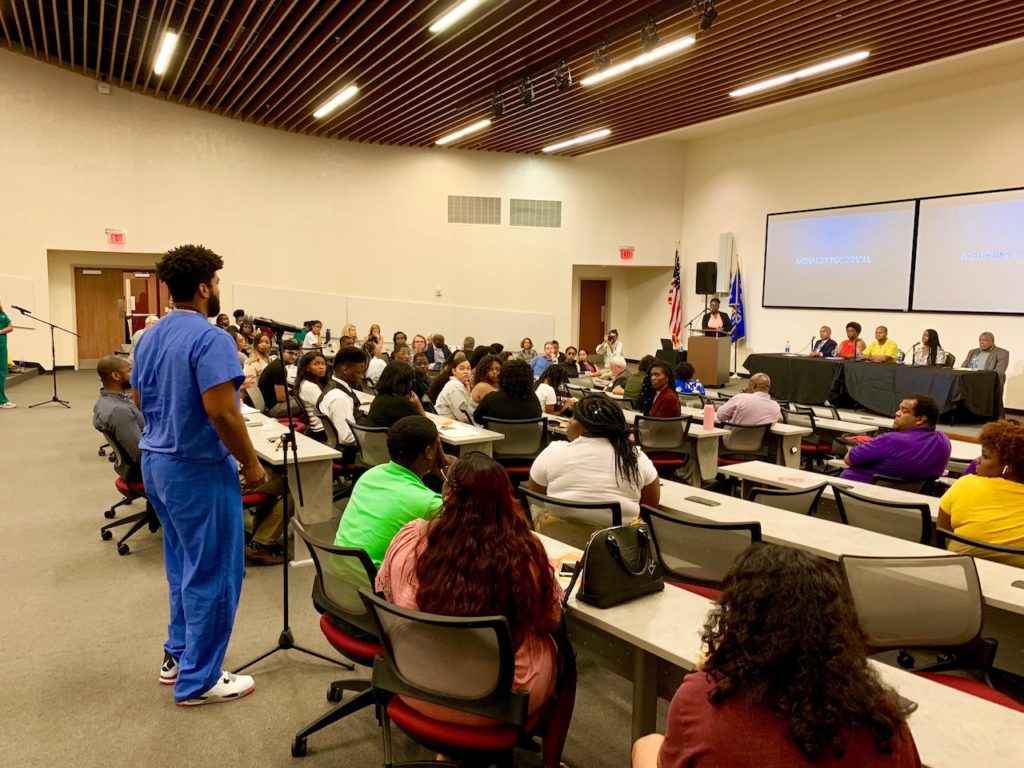
Meharry Medical College is under fire from some of its own students for accepting money from Juul to study vaping. Anti-smoking advocates held a town hall meeting on campus Wednesday night.
Many institutions have turned down money from Juul, which has also been
lobbying black politicians. Public health researcher Phil Gardiner from the University of California said Meharry should consider returning the $7.5 million, despite its being one of the largest research grants in school history.
“We have, I would say, a financially needy HBCU accepting money from the main killer of black folks,” Gardiner said, accusing Juul of “essentially buying a lot of people’s silence.”
Smoking
disproportionately kills African Americans, and tobacco giant Altria has
purchased a large stake in Juul.
Black people have also been slower to take up vaping, and some expressed concerns the historically black medical school is ultimately being used to market e-cigarettes as a healthier alternative.
Meharry began taking heat from black leaders
almost immediately after going public about accepting Juul’s money. The school’s top officials have said they expected pushback but have defended the partnership.
Patrick Johnson, senior vice president of institutional investment, sat with a panel of critics Wednesday evening, which included the Metro Health Department’s tobacco prevention coordinator, and told them he agreed with most of what they said *except the comments about the school’s finances.
“Meharry is not a broke institution,” he said. “We’re not a struggling HBCU. I know many of our HBCUs are.”
Johnson acknowledged that Meharry does trail many medical schools in research funding. But he reiterated that the school has a contract that allows the publishing of all the findings and that the research will be conducted without input from Juul or other interest groups.
“If it’s devastating, I want to tell everyone to run from day one,” Johnson told the room of mostly Meharry students. “If it’s something that gets tweaked and could be a cessation tool, I don’t want to wait 10 years to figure that out.”
Some students said, despite their distrust of the tobacco industry, they are optimistic the school can conduct objective research.
But they also feared any studies would be seen as tainted by the scientific community, which has broad skepticism of tobacco-funded science. Even Meharry has had a policy against accepting tobacco money for research.
“I think it’s kind of counterproductive,” said Shanika Kidd, a public health student. “Although this is a great opportunity, I’m not sure it will be worth it in the end.”
*added after original posting for clarity.


